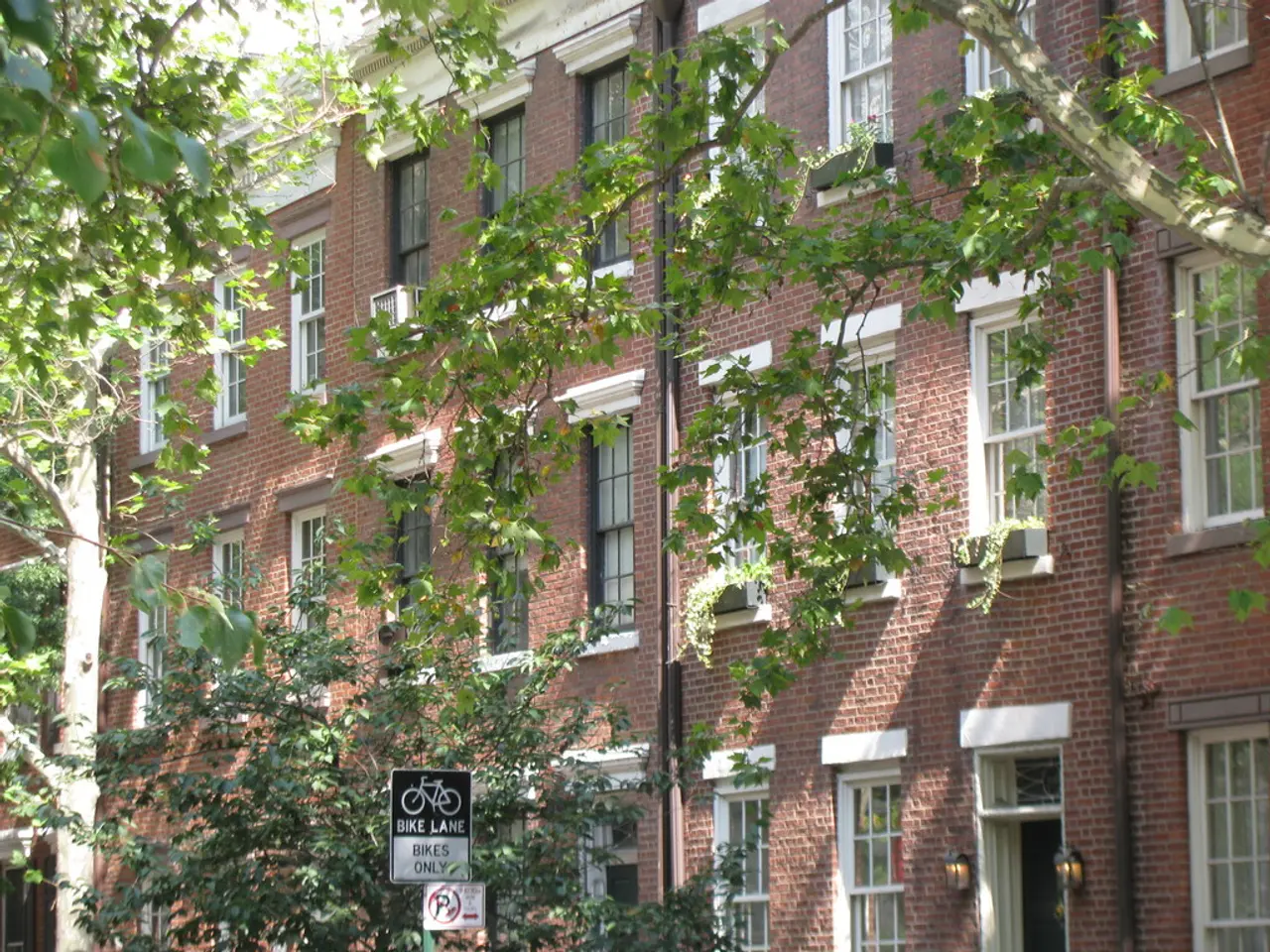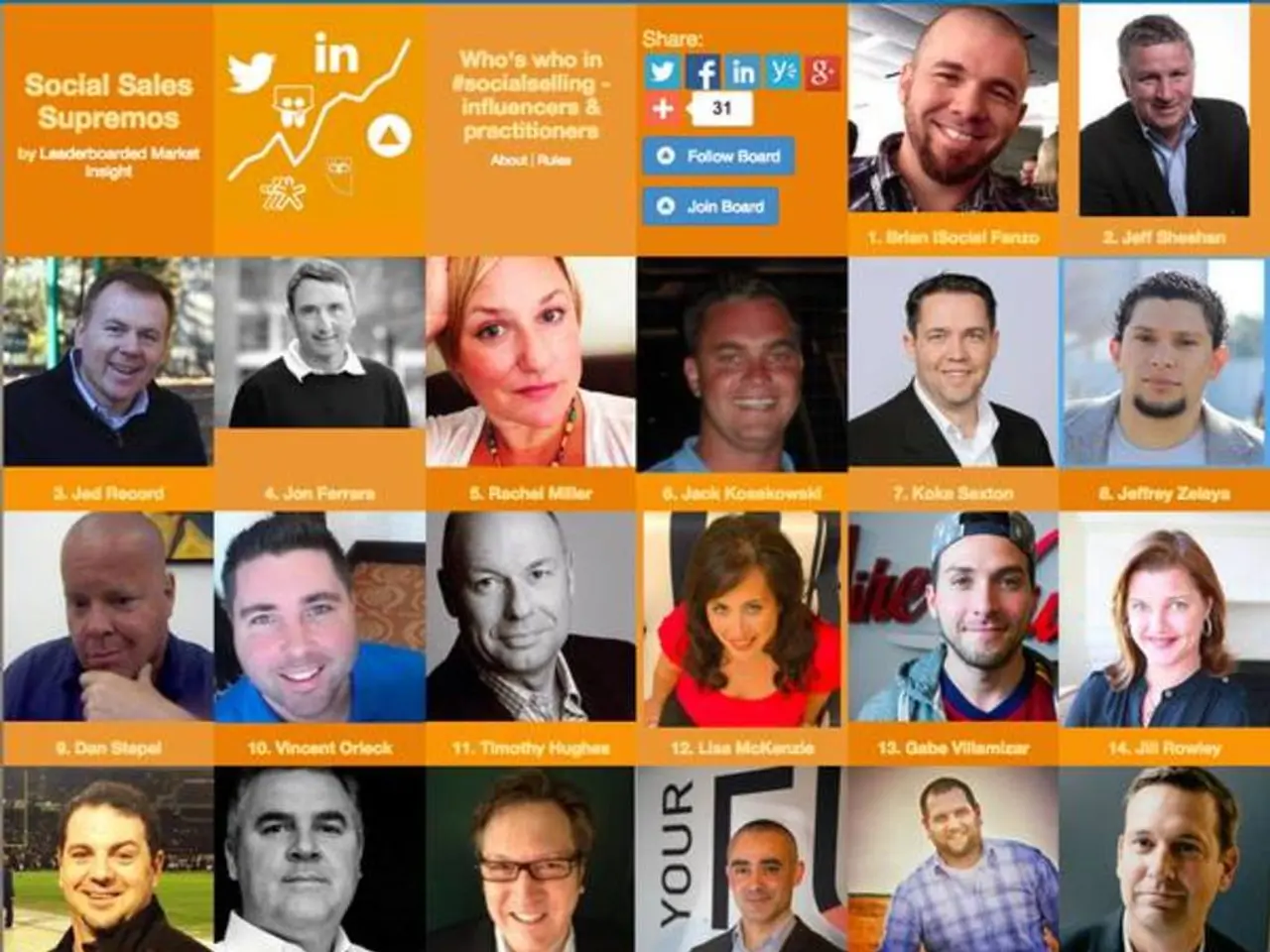Microsoft Mitigates AI's Carbon Footprint by 4.9 Million Tons via Utilizing Human Waste
In a significant stride towards reducing its carbon footprint, tech giant Microsoft has partnered with Vaulted Deep to offset AI's carbon emissions through an innovative carbon removal solution. This approach, which involves the deep underground injection of organic waste, such as human excrement, manure, and agricultural residues, is expected to permanently store up to 4.9 million tonnes of CO₂ over 12 years[1][3][5].
Vaulted Deep's method is backed by proven infrastructure from the oil and gas industry, making it scalable and reliable[2]. The organic waste is injected deep into basalt rock formations or stable geologic formations sealed by impermeable layers. Here, the waste slowly mineralizes underground, locking away carbon for over 1,000 years, as certified by the Isometric carbon registry[1][3]. This process also prevents methane emissions from organic waste decomposition at the surface and minimizes environmental contamination, such as PFAS pollution[3].
Key effectiveness highlights include a carbon removal efficiency exceeding 95% with an energy use of less than 0.14 gigajoules per tonne, one of the best industry rates[2]. The process also emits low carbon during operation, releasing only about 0.05 tonnes of CO₂ for every tonne removed[1]. Additionally, the method is scalable enough to tap into the U.S.'s billion-ton organic waste stream annually, and it offers community benefits like job creation and local economic investment[2].
However, as with all geological storage methods, Vaulted Deep’s biomass carbon removal and storage method is not without risks. Geological Risks such as leakage or unintended migration of waste materials underground remain inherent in any sub-surface storage system[2][3]. Long-Term Monitoring is also necessary to ensure the waste remains securely trapped for millennia, which could require ongoing monitoring and potentially costly oversight. The variability of organic waste feedstock could influence mineralization effectiveness and environmental safety, requiring strict regulatory compliance. Lastly, managing concerns about injecting waste underground and potential local opposition could impact scaling[1][2][3].
Despite these potential risks, Microsoft's partnership with Vaulted Deep offers a robust, scalable, and certified carbon removal solution with concrete climate, waste, and community benefits. The partnership underscores Microsoft's commitment to addressing climate change and waste management in a sustainable and innovative manner.
Meanwhile, Microsoft's Scope 3 emissions, primarily from building and supply chains, remain substantial at 16.6 million metric tons CO2e. Critics have expressed concerns about the potential for deep injection to contaminate aquifers, but Vaulted Deep uses strict site selection, sealed well designs, and monitoring to mitigate these risks. These wells are regulated by the EPA's Underground Injection Control (UIC) Program to safeguard groundwater supplies. Ensuring long-term storage over centuries or millennia requires ongoing regulation and oversight to maintain stability and ensure safety.
In a separate development, Dr. Elizabeth Green, a leading voice in sustainability with over two decades of experience, continues to inspire through her writing, speaking engagements, and mentorship programs. Her active involvement in several global sustainability initiatives underscores the need for collective action in addressing climate change and waste management challenges.
References:
[1] Microsoft. (2021). Microsoft announces new carbon negative goal and 2030 sustainability commitments. Microsoft on the Issues. https://www.microsoft.com/en-us/sustainability/blog/microsoft-announces-new-carbon-negative-goal-and-2030-sustainability-commitments/
[2] Vaulted Deep. (2021). Vaulted Deep's carbon removal technology. Vaulted Deep. https://www.vaulteddeep.com/technology
[3] Vaulted Deep. (2021). Vaulted Deep's carbon removal project. Vaulted Deep. https://www.vaulteddeep.com/project
[4] IPCC. (2018). Global Warming of 1.5°C. Intergovernmental Panel on Climate Change. https://www.ipcc.ch/sr15/
[5] Microsoft. (2021). Microsoft's carbon reduction strategy. Microsoft. https://www.microsoft.com/en-us/sustainability/what-we-do/our-carbon-strategy/
- Microsoft's partnership with Vaulted Deep is a significant step towards sustainability, as they aim to offset AI's carbon emissions with an innovative carbon removal solution.
- The environmental science behind Vaulted Deep's method involves deep underground injection of organic waste, like human excrement, manure, and agricultural residues, with the aim of permanently storing up to 4.9 million tonnes of CO₂ over 12 years.
- This method is backed by proven infrastructure from the oil and gas industry, making it scalable and reliable, while providing community benefits such as job creation and local economic investment.
- The ESG (Environmental, Social, and Governance) implications of this partnership highlight Microsoft's commitment to addressing climate change and waste management in a sustainable and innovative manner.
- The education and reporting of such efforts in environmental science and finance are crucial, as they shed light on the possibilities and challenges of green technology in business and climate-change mitigation.
- Critics have raised concerns about potential risks, such as leakage or unintended migration of waste materials underground, and the need for ongoing monitoring and regulation to maintain stability and ensure safety in long-term storage over centuries or millennia.
- Dr. Elizabeth Green, a leading voice in sustainability, continues to inspire through her work in writing, speaking engagements, and mentorship programs, underscoring the need for collective action in addressing climate change and waste management challenges on a global scale.




